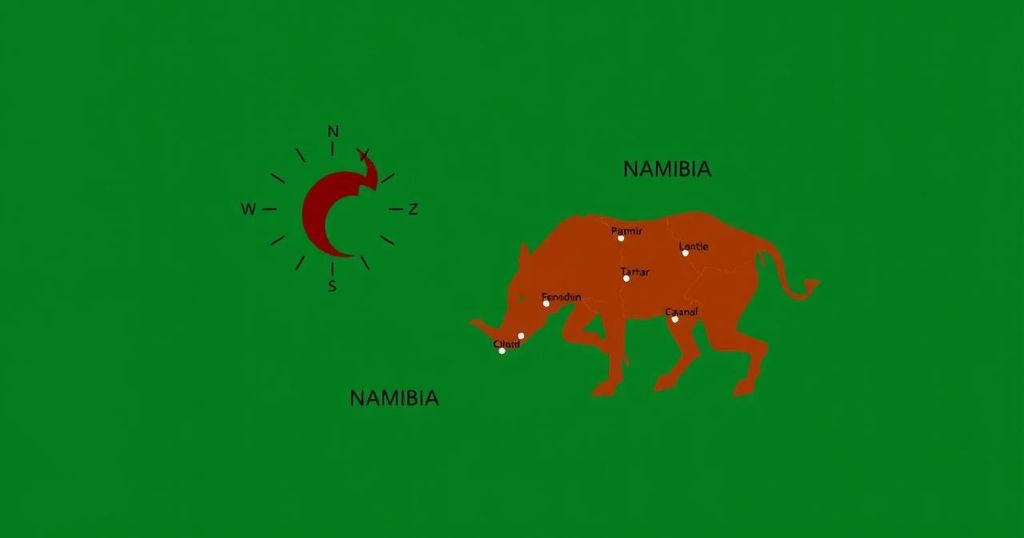The 2024 elections in Namibia are marked by significant opposition movements challenging the long-standing SWAPO Party. Vice President Netumbo Nandi-Ndaitwah is the frontrunner, facing criticism over her party’s track record on corruption and economic inequality. With high youth unemployment and public dissatisfaction, political dynamics may shift, influencing the election outcomes significantly.
As Namibia approaches its 2024 presidential and parliamentary elections, the political landscape is witnessing unprecedented competitiveness, reminiscent of recent electoral upheavals in Southern Africa. The ruling SWAPO Party, governing since independence in 1990, faces significant challenges from a burgeoning opposition and increasing discontent among the youth. Only 1.45 million citizens are registered to vote, with 21 parties contesting for 96 parliamentary seats. This election’s outcomes could herald a pivotal shift in Namibia’s political dynamics.
Leading the SWAPO campaign is Vice President Netumbo Nandi-Ndaitwah, the first female presidential candidate from the party, who is considered the frontrunner despite public dissatisfaction with the ruling party’s handling of corruption, unemployment, and economic inequality. Analysts note Nandi-Ndaitwah’s popularity stems from her integrity, contrasting with SWAPO’s alleged corruption issues. Meanwhile, former SWAPO youth leader Panduleni Itula aims to capture youthful votes under his party, the Independent Patriots for Change, having previously garnered 29% as an independent candidate in 2019. Additionally, significant figures such as McHenry Venaani of the Popular Democratic Movement and Bernadus Swartbooi of the Landless People’s Movement add to the competitive atmosphere, focusing on land reforms and addressing historical grievances.
The key issues at stake in this election encompass economic inequality, staggering youth unemployment at 43%, rising corruption scandals, particularly the fish-rot scandal that has tainted governmental images, and a severe housing shortage. Analysts express cautious optimism about the electoral process, emphasizing the potential for peaceful resolutions but acknowledging concerns regarding the accuracy of delayed results.
Ultimately, the elections’ results could transform Namibia’s political trajectory, reflecting broader shifts toward democratic accountability in the region, or reinforce the incumbency of a government long regarded as a linchpin in Namibian politics.
Namibia’s upcoming elections are poised against a backdrop of significant political shifts throughout Southern Africa, where traditional ruling parties have lost power under mounting public pressure. This context could serve to galvanize opposition movements within Namibia, particularly among the youth disillusioned by the longstanding governance of SWAPO. The government’s response to critical issues, including economic disparity, corruption, and youth unemployment, will heavily influence the election results. With increased political competition and citizen engagement, the 2024 elections could mark a turning point in Namibian politics—either affirming SWAPO’s dominance or paving the way for substantial change.
The 2024 Namibian elections represent a critical juncture for the country, potentially altering its political landscape as voter sentiment shifts towards the opposition, fueled by concerns over governance and economic management. Vice President Nandi-Ndaitwah must navigate public dissatisfaction while fending off formidable challengers like Panduleni Itula, who resonate strongly with younger voters. As the elections unfold, the outcomes will offer insights into the future of democracy in Namibia and its capacity to address pressing national issues.
Original Source: www.aljazeera.com






